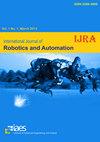Study on the perception of generation Z in relation to robotized selection processes
IF 1
4区 计算机科学
Q4 AUTOMATION & CONTROL SYSTEMS
International Journal of Robotics & Automation
Pub Date : 2023-09-06
DOI:10.15406/iratj.2023.09.00271
引用次数: 0
Abstract
Born in the mid-1990s, Generation Z emerged in the midst of a society whose advances in digital and technological media have been shaping the way companies act, especially in hiring people. This is an emerging generation, and studies and research on it are incipient. The aim of this study was to identify and analyze the perception of Generation Z regarding the robotization of selection processes and the application of artificial intelligence. The study used a survey with online questionnaires addressing how Generation Z has behaved in robotic selection processes. Contradicting what is disclosed in the media in general, a representative part of the sample is reticent in accepting a robotic selection process conducted by artificial intelligence as a mediator; besides that, there is a certain distrust with personal data made available technologically, as there are several platforms that adhere to this technology as a method of filtering suitable candidates for a given vacancy. Although the research had a reduced number of respondents (108) and a sample of only one program from a single university, which is a limitation of the study, the analyses of the results indicate the need for companies to review the use of artificial intelligence to ensure greater humanization, starting from the selection process in organizations. Furthermore, the data reveal that Generation Z may not represent a group of people with a completely homogeneous profile as shown by the media in general.Z世代对机器人选择过程的认知研究
Z世代出生于上世纪90年代中期,他们出现在一个数字和技术媒体的进步一直在影响企业行为方式的社会中,尤其是在招聘方面。这是一个新兴的一代,对它的研究和研究刚刚起步。本研究的目的是识别和分析Z世代对选择过程机器人化和人工智能应用的看法。这项研究使用了一项在线问卷调查,调查了Z世代在机器人选拔过程中的表现。与一般媒体披露的内容相矛盾,样本的代表性部分在接受由人工智能作为调解人进行的机器人选择过程中保持沉默;除此之外,人们对从技术上提供个人数据存在一定的不信任,因为有几个平台坚持使用这种技术作为过滤特定职位合适候选人的方法。虽然该研究的受访者数量减少了(108人),而且样本只来自一所大学的一个项目,这是研究的局限性,但对结果的分析表明,公司需要从组织的选择过程开始,重新审视人工智能的使用,以确保更大程度的人性化。此外,数据显示,Z世代可能并不像一般媒体所展示的那样,代表着一群完全同质的人。
本文章由计算机程序翻译,如有差异,请以英文原文为准。
求助全文
约1分钟内获得全文
求助全文
来源期刊
CiteScore
1.20
自引率
44.40%
发文量
71
审稿时长
8 months
期刊介绍:
First published in 1986, the International Journal of Robotics and Automation was one of the inaugural publications in the field of robotics. This journal covers contemporary developments in theory, design, and applications focused on all areas of robotics and automation systems, including new methods of machine learning, pattern recognition, biologically inspired evolutionary algorithms, fuzzy and neural networks in robotics and automation systems, computer vision, autonomous robots, human-robot interaction, microrobotics, medical robotics, mobile robots, biomechantronic systems, autonomous design of robotic systems, sensors, communication, and signal processing.

 求助内容:
求助内容: 应助结果提醒方式:
应助结果提醒方式:


